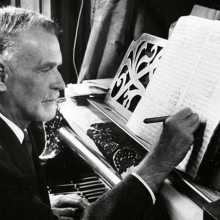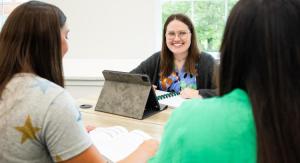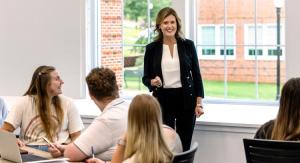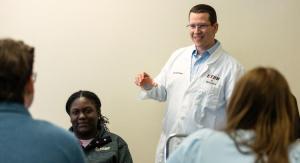
“Let us take our children seriously! Everything else follows from this...only the best is good enough for a child.”
Kodály Certification Courses at ETBU
Dates: July 6-17, 2026
Location: ETBU Campus
Level I Cost: $850 (materials included)
Level II Cost: $850 (materials included)
If you are interested in housing for this training, please contact Lynette Vincent at 903-923-2155 or email her at lvincent@etbu.edu.
Participants will earn 75 professional development hours and will receive a certificate at the end of the training. Participants should not schedule other events during the time of the training course. Classes meet every weekday with evening homework assignments. Attendance at all class sessions is mandatory to receive a certificate at the end of the training course.
Registration Deadline: June 15, 2026
- Level 1
-
Level 1 Description
This is the first of three levels of training in the Kodály approach of music teaching. Kodály training is based on the philosophy of Zoltán Kodály (1882-1967), Hungarian music educator, composer, ethnomusicologist, and linguist. Singing authentic folk songs is the foundation for early music education in the Kodály approach. Kodály believed that only the best teacher musicians should teach young children. Teachers of this approach are dedicated to excellent musicianship and pedagogy because “only the best is good enough for a child.”
This philosophy is in keeping with the Biblical view of the value of children expressed in scripture. "Behold, children are a heritage from the LORD, the fruit of the womb a reward." Psalm 127:3
Level 1 Coursework
Musicianship: Sight-singing, ear training, inner hearing, rhythm reading, part-singing, memory, and dictation using relative solmization and absolute pitch.
Pedagogy: History of the Kodály philosophy of music education and scope and sequence, short- and long-range planning, music selection, and development of teaching practices and skills for early elementary (K-1).
Music Literature: American folk music, traditional children’s songs and games, folk song collecting
Choral Conducting: Conducting gesture and technique, score analysis and preparation, rehearsal strategies, a cappella singing, use of tuning fork, literature for children’s choirs.
- Level 2
-
Level 2 Description
This is the second of three levels of training in the Kodály approach of music teaching. This level is focused on continued growth as a musician and pedagogue with a focus on modes and diatonic scales, pedagogy for grades 2-3, conducting skills for children’s and youth choirs, and folk song transcription.
Prerequisite: Kodály Level 1Level 2 Coursework
Musicianship: Sight-singing, ear training, inner hearing, rhythm reading, part-singing, memory, dictation using relative solmization and absolute pitch in modal and diatonic settings; dulcimer.
Pedagogy: Philosophical principles of the Kodály approach to music education; and scope and sequence, lesson planning including transitions, short- and long-range planning, music selection, and development of teaching practices and skills for intermediate elementary (2-3).
Music Literature: Context and style of American folk music; researching, collecting, analyzing, and transcribing folk songs; folk music from other countries.
Choral Conducting: The following will be considered as they relate to children’s and youth choirs: conducting gesture and technique, score analysis and preparation, rehearsal strategies, acapella singing, use of a tuning fork, and choral literature.
| Summer 2026 | July 6-17 |
| Summer 2027 | July 5-16 |
| Summer 2028 | July 10-21 |












